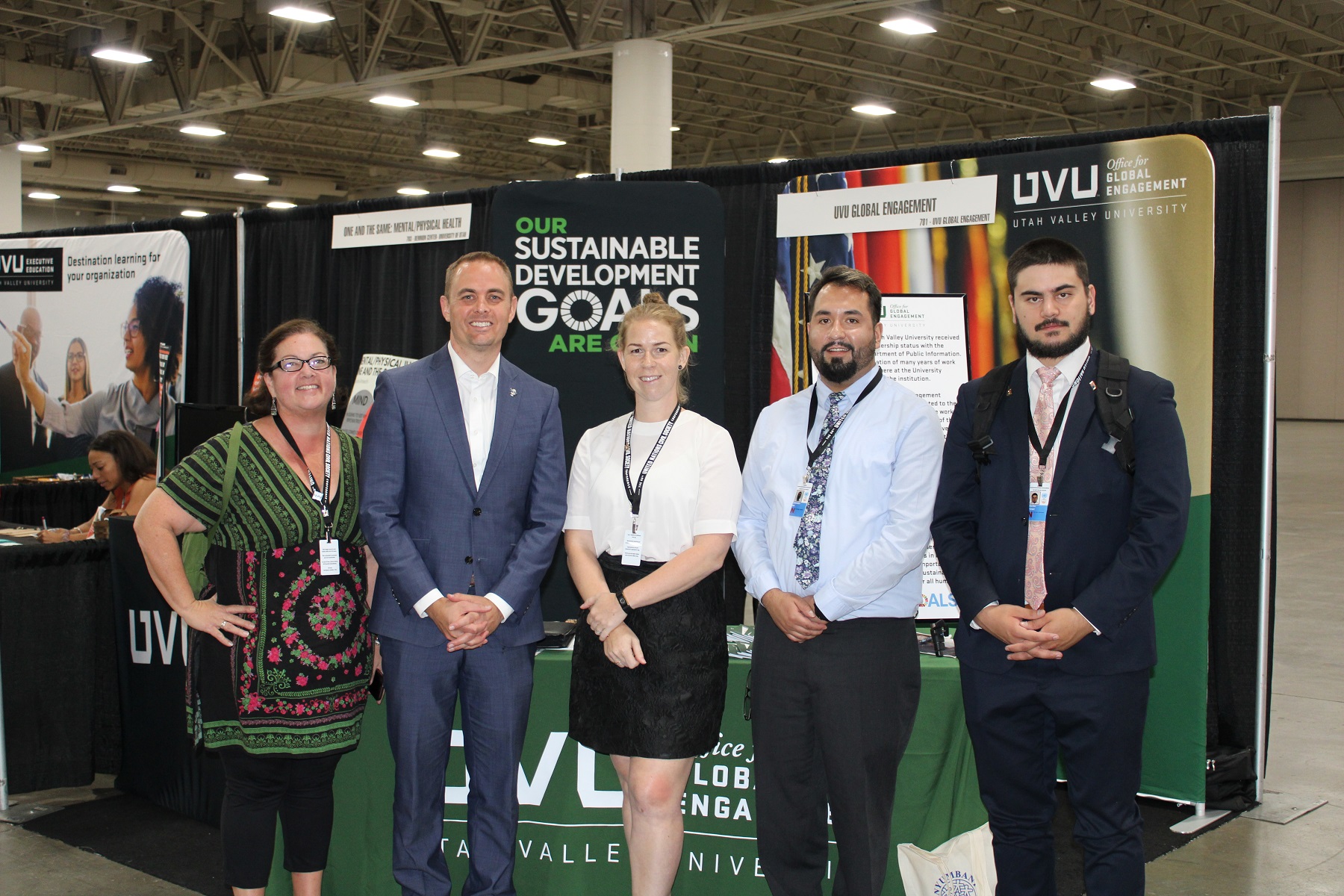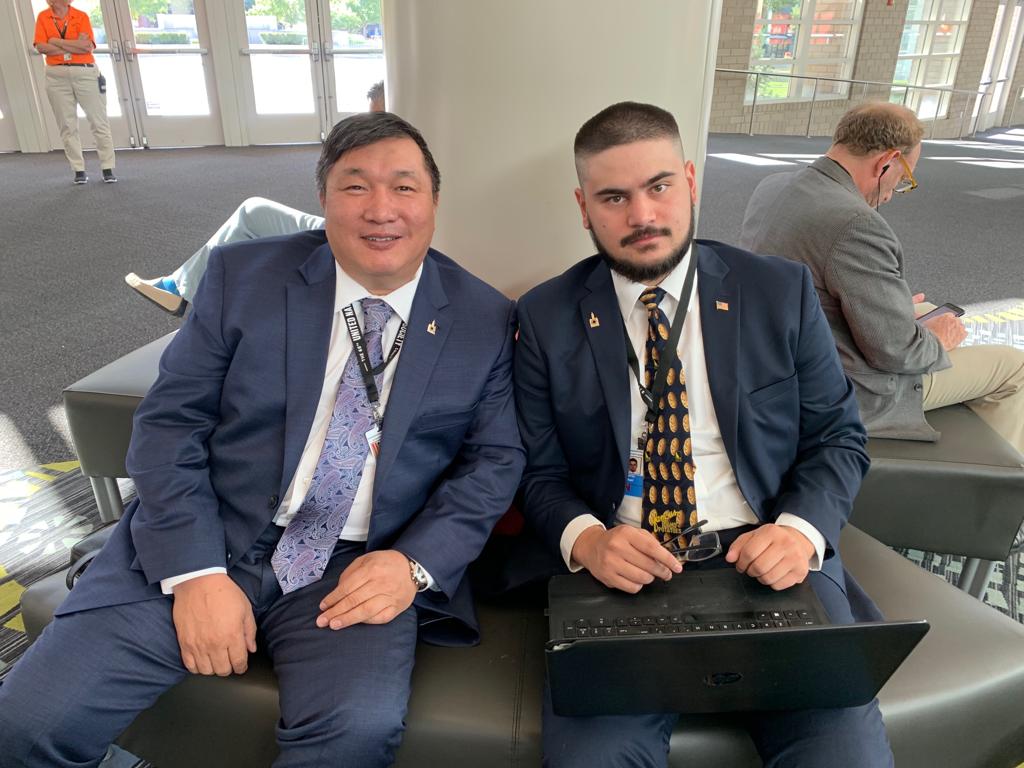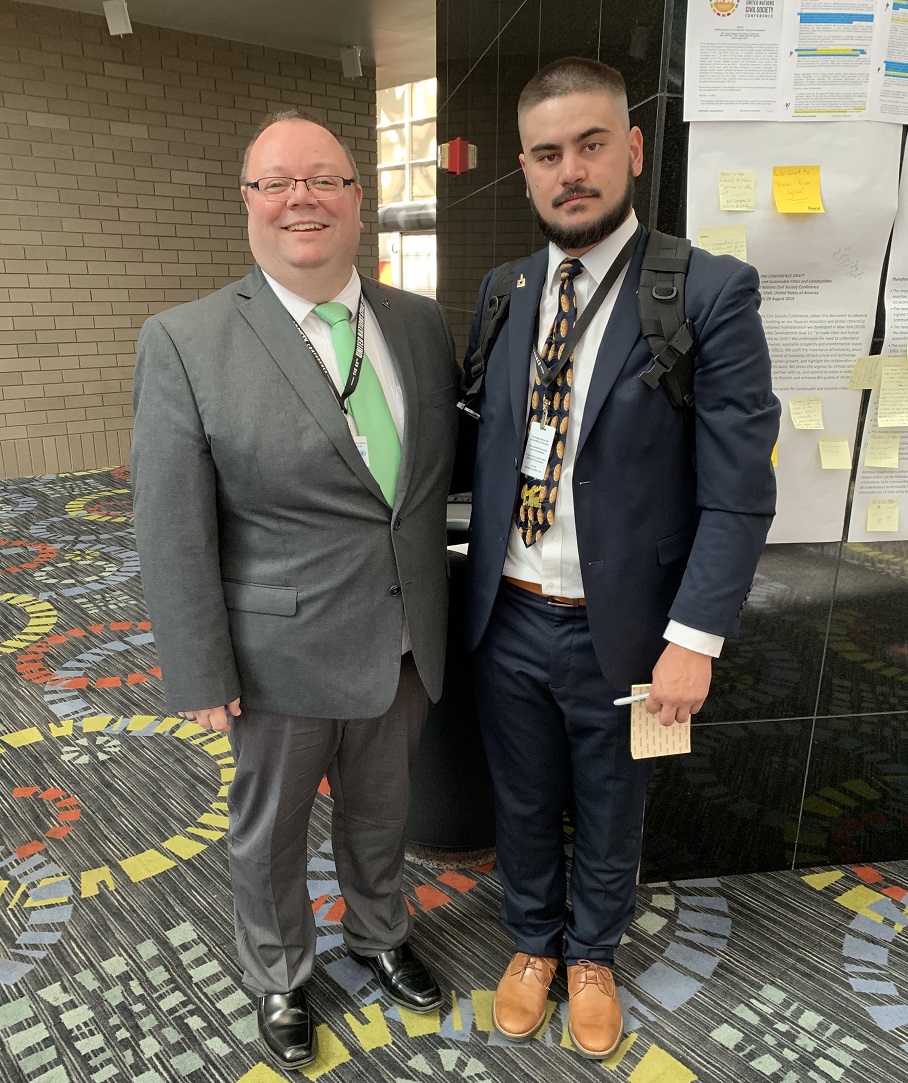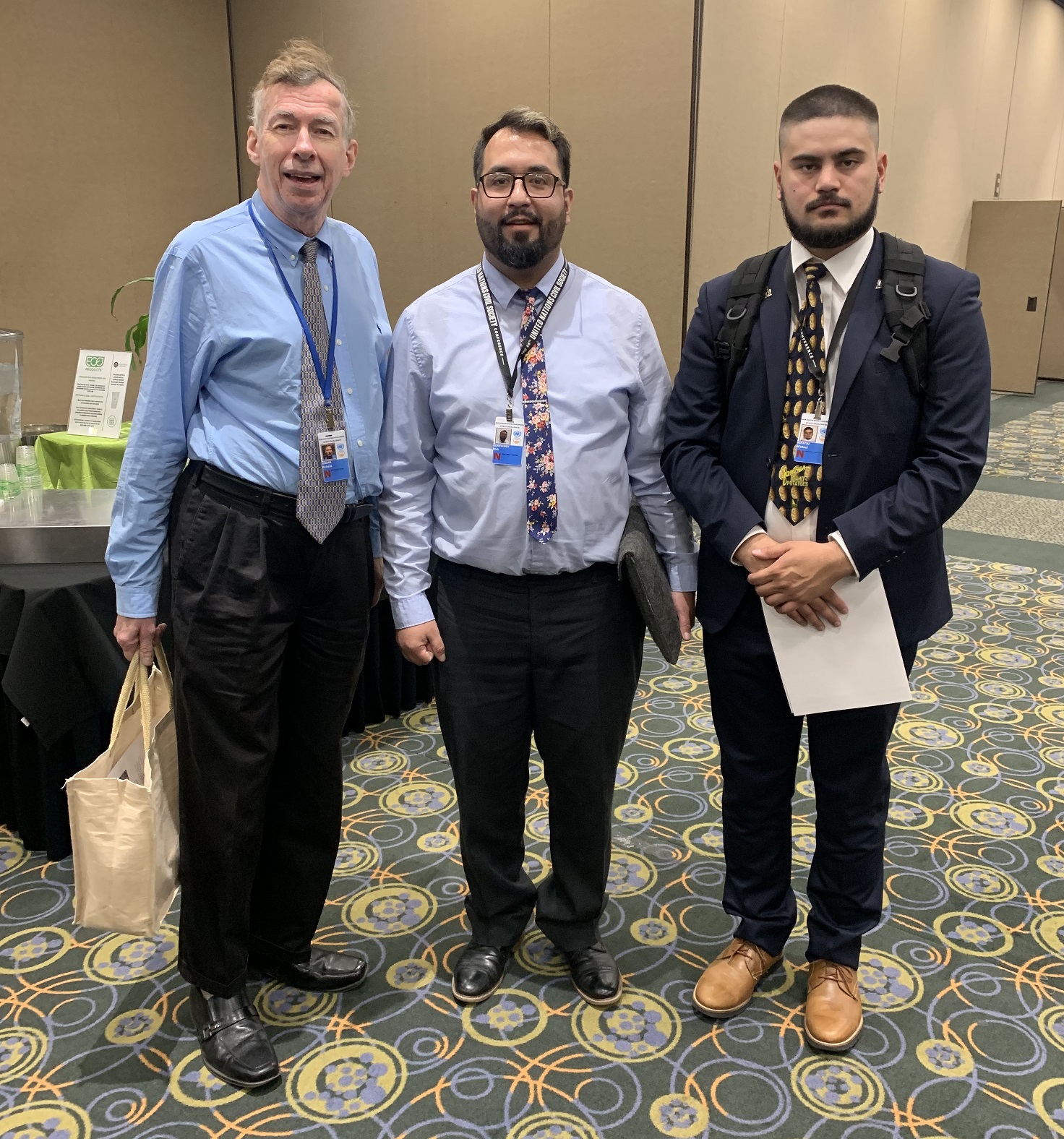
On August 26-28, 2019, the Utah International Mountain Forum (UIMF), a coalition of student clubs at Utah Valley University (UVU), participated in the 68th United Nations (UN) Civil Society Conference (UNCSC) in Salt Lake City, Utah, to advocate for the empowerment of communities who live in mountainous areas. UIMF members hosted a workshop titled “Student Engaged Learning to Advocate for Mountain Women and Targets at UN ECOSOC forums” on August 28, 2019 and a booth during the duration of the UNCSC. A major part of UIMF’s advocacy was to ensure that the UNCSC Outcome Document included language about mountains and their communities, as well as language about the importance of education in achieving the Sustainable Development Goals (SDGs).
Several dignitaries contributed to UIMF efforts: Mr. Kurmanbek Dyikanbaev, Plenipotentiary Representative of the Kyrgyz President to the Kyrgyz Parliament, who brought a letter from the head of the country urging for the mountain language to be included in the final document of the UNCSC and Mrs. Julie Kofoed, Senior Manager for Social Sustainability with UN Global Compact, who advised coalition members how to achieve that goal not only with UNCSC final document, but also next year during the 64th session of the Commission on Status of Women.

(L to R): Ms. Amy Barnett, UVU office of Global Engagement, Mr. Miles Hansen, President, Utah World Trade Center, Mrs. Julie Kofoed, Senior Manager for Social Sustainability with UN Global Compact, Mr. William Gum, UIMF member and Mr. Michael Hinatsu, VP, UIMF during the conference
Since 2016, UIMF has conducted similar advocacy campaigns to ensure such language was included in other UN forums on sustainability, including the 62nd and 63rdsessions of the UN Commission on the Status of Women, as well as the 2018 High-Level Political Forum on sustainable development.
To prepare for this conference, Dr. Baktybek Abdrisaev, UIMF’s faculty mentor, and myself worked to analyze the various drafts of the Outcome Document to find places where we could insert language about women and girls in mountain and small island areas, as well as UVU’s student engaged learning model (SEL) and the empowerment of all learners as implementation of the UN 2030 Agenda on Sustainable Development.
Much of our language submitted to the draft Outcome document was not included in the final draft exactly as we suggested it in our submission; for example, UIMF’s language also included mention of the importance of empowering women and girls in mountain communities in particular, as well as empowering all learners, specifically nontraditional students, to implement the UN 2030 Agenda on Sustainable Development.
However, thanks to the efforts of UIMF members, UVU faculty, and key partners within the UN system, including from Kyrgyzstan and NGOs, some of UIMF’s proposed language about mountains was included in the preamble of the 68th UNCSC Outcome Document in the following way: “We recognize the interdependence of rural and urban prosperity, as well as the need to address the specific conditions of mountainous areas and small island developing States.”
Additionally, the document included language stating “the need to empower all generations with education, skills, and opportunities.”

(R to L): Michael Hinatsu discusses proposed language about mountains to the UNCSC Outcome Document with Mr. Kurmanbek Dyikanbaev, Plenipotentiary Representative of the President to the Kyrgyz Parliament.
During the UNCSC, I had the task and opportunity to monitor the progress of the Outcome Document and working to advocate during civil society caucuses and other meetings for UIMF’s language to be included in it. I divided time between my responsibilities with UIMF member William Gum-Causey to host Mrs. Julie Kofoed with my work of attending civil society and youth caucuses regarding the content of the Outcome Document drafts.

(R to L): Michael Hinatsu discusses proposed language about mountains to the UNCSC Outcome Document with Mr. Felipe Queipo, UN Department of Public Information
With the help of Dr. Abdrisaev and in particular Mr. Richard Jordan, Dean of UN Non-governmental representatives, New York, Mr. Kurmanbek Dyikanbaev, Plenipotentiary Representative of the President to the Kyrgyz Parliament, and Mr. Felipe Queipo with the UN Department of Public Information, I was able to attend the most important caucus meetings and follow important advises on how best to raise awareness for UIMF language.

(L to R): Mr. Richard Jordan, William Gum and Michael Hinatsu discuss proposed language about mountains to the UNCSC Outcome Document.
I attended one such caucus on Tuesday, August 27, which was moderated by the UNCSC Chair, Mrs. Maruxa Cardama. During this town hall meeting, I was able to address Mrs. Cardama and the other moderators about the importance of including mountains in the Outcome Document, since mountains and their communities, especially women and girls, suffer disproportionately from the effects of climate change, as well as poverty and food insecurity. I also addressed the need to include all leaners, not just youth, in the Outcome Document, as part of implementation of SDG target 4.7. I similarly attended one of the sessions of the youth caucus to monitor the progress of the UNCSC Youth Climate Compact.
I am very grateful to Mr. Jordan, Dr. Abdrisaev, and my fellow UIMF members, as well as all others who helped UIMF to advocate for its language to be included in the UNCSC Outcome Document. On behalf of UIMF, I also very much thank UVU, in particularly the Office of Global Engagement, for assisting UIMF to attend the UNCSC and providing the groundwork by which UIMF connected with NGOs, diplomats, and others to conduct our advocacy work. Such work shows the effectiveness of civil society partnerships and UVU’s SEL model to empower students to implement the 2030 Agenda both locally and on a global level.
UIMF is preparing under SEL to attend the 64th session of the UN Commission on the Status of Women in 2020, with the goal of ensuring that similar language will be included in that forum’s final document.
Michael Hinatsu, UIMF Vice President

